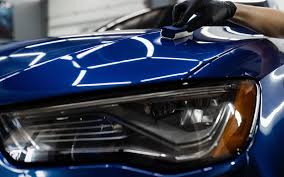How to Choose the Right Collision Repair Center
When you’ve been in an auto accident, one of the most important decisions you’ll make is choosing the right collision repair center. Your vehicle isn’t just a mode of transportation — it’s a major investment and often essential to your daily life. A trustworthy repair shop ensures not just a smooth process but also long-term safety and performance. If you’re unsure where to start, reputable providers like clinecollisioncenter.com offer a great example of the professionalism and service quality you should expect.
In this guide, we’ll walk you through the essential factors to consider before selecting a collision repair shop. Whether it’s your first time dealing with auto body damage or you’ve had previous experiences that didn’t go well, these tips will help you choose wisely.
1. Start with Certification and Credentials
The first sign of a reliable auto body shop is its certification. Certified repair centers meet rigorous standards set by organizations like ASE (Automotive Service Excellence) or specific car manufacturers. These certifications indicate that the technicians have been trained in the latest repair technologies and safety protocols.
A shop like CLINE, for example, maintains professional standards to ensure every repair meets both manufacturer and insurance expectations.
2. Ask About Experience with Your Vehicle Make
Not all cars are the same — especially with the rising use of advanced materials and smart technologies in vehicles today. Whether you drive a Toyota, BMW, Tesla, or Ford, the shop you choose should have direct experience working on that make and model.
Some repair centers specialize in luxury or electric vehicles, so always inquire if they’ve handled similar repairs before.
3. Check Reviews and Reputation
Online reviews are invaluable. They give you a sense of a shop’s customer service, turnaround time, and quality of work. Look for consistent praise regarding transparency, communication, and clean, well-done repairs.
Don’t just stick to Google — check platforms like Yelp, Better Business Bureau, or even Facebook groups specific to your city or region. A company with a stellar online reputation, like CLINE, often reflects solid customer satisfaction and reliable services.
4. Request an Estimate (and Compare It)
Don’t settle for the first estimate you receive. Reputable repair centers provide free, detailed quotes and explain the breakdown clearly. This includes labor, parts, paint, and time estimations.
Be wary of unusually low estimates — these could indicate cheap aftermarket parts or rushed repairs. On the other hand, higher costs should be justified with factory parts, superior workmanship, or warranties.
5. Look at the Facility’s Cleanliness and Equipment
A clean, organized shop isn’t just about appearances — it reflects professionalism and quality standards. Top-tier collision centers invest in modern tools, computerized frame measuring systems, and high-tech paint booths.
When you visit a facility like clinecollisioncenter.com, you’ll notice the attention to detail and investment in the latest technology — something that speaks volumes about the quality of repair you can expect.
6. Ask About the Warranty on Repairs
Warranties give you peace of mind. Always ask what kind of warranty the repair shop offers. Many reputable shops provide a lifetime warranty on bodywork or paint jobs as long as you own the car.
The warranty is a reflection of the shop’s confidence in its craftsmanship. Be sure to get it in writing and understand any limitations.
7. Understand Insurance and Direct Repair Programs
Some auto body shops are part of Direct Repair Programs (DRPs) with insurance companies. While this often streamlines the process, be cautious — you are not obligated to use your insurer’s preferred shop. You have the right to choose the collision repair center that suits your needs.
Shops like CLINE work with all major insurance providers but also advocate for customer choice and transparency in repairs.
8. Turnaround Time Matters
Ask how long repairs will take — and be wary of vague answers. A reliable collision repair center will assess damage, order necessary parts, and keep you updated throughout the process. Good communication is key to a stress-free experience.
While timeframes may vary depending on parts availability or damage extent, the shop should be able to provide a realistic timeline.
9. Get a Tour or Visual Walkthrough
If you’re still unsure, ask for a quick tour of the facility. Reputable centers have nothing to hide and will often be happy to walk you through their workstations, introduce technicians, or show examples of work in progress.
Seeing before-and-after examples of repairs — and how clean and organized the operation is — can build trust instantly.
10. Customer Service Should Be a Priority
From the moment you walk in, the service experience should feel smooth and respectful. Friendly staff, honest communication, and responsiveness make a huge difference in what can already be a stressful time.
Collision repair isn’t just about fixing dents and scratches — it’s also about restoring confidence and getting you safely back on the road. Choose a center that treats you like a valued client, not just a job number.
Final Thoughts: Make an Informed Decision
Accidents are never fun, but choosing the right collision repair center can make the aftermath a whole lot easier. Take your time, do your research, and don’t be afraid to ask questions. From certification and warranties to communication and quality of work, every detail matters.
If you’re seeking professional service backed by experience, integrity, and state-of-the-art tools, clinecollisioncenter.com is a great place to start and finish your journey to full vehicle restoration.






